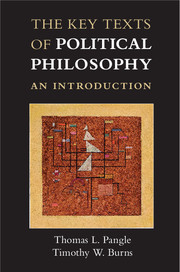Introduction
Published online by Cambridge University Press: 05 October 2014
Summary
What is political philosophy? Why is its study important? And why should political philosophy be introduced as it is in this volume – through a sustained encounter with a very few old books, whose authors lived in civic cultures profoundly unlike our own? Why do we not begin from books and thinkers of our own time? How will we get at the problems that are most important for us today through reading long-dead authors? Are not the important issues of politics those that are pressing, urgent, “the burning issues of the day?” What is in these old books that could be more significant?
The answer is simple. The books that we will be studying embody humanity’s most powerful attempts to grapple with the truly fundamental and enduring questions about human existence. What are the ultimate ends or purposes of our lives, as individuals and as political communities? What constitutes human fulfillment and flourishing? Can security, health, prosperity, and entertainment be all that our existence is for? Or must not these goods be understood as, at best, a foundation and means or opportunity, for higher activities and concerns? To speak of the “higher” is to speak of that which has and bestows dignity; what is it that gives our existence dignity? What is it that makes this particular life-form – a human life – deserving of special respect or even reverence? What makes us different in rank from the other animals, so that we feel that we are free to eat and to enslave them, but not our fellow humans?
- Type
- Chapter
- Information
- The Key Texts of Political PhilosophyAn Introduction, pp. 1 - 10Publisher: Cambridge University PressPrint publication year: 2014

